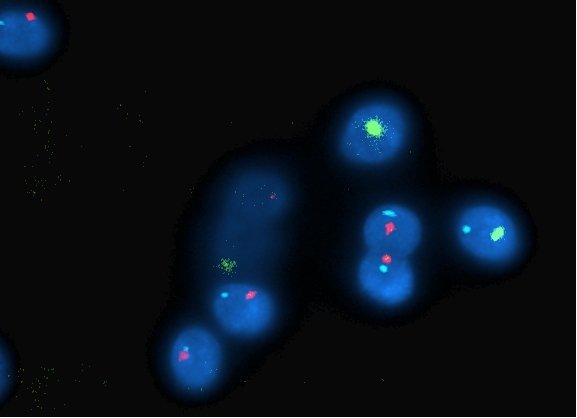The American Journal of Assisted Reproduction and Genetics references research work on fluorescence in situ hybridisation sperm analyses and the results obtained in assisted reproduction techniques
12-09-2019

The August 2019 issue of the Journal of Assisted Reproduction and Genetics (JARG) referenced research work about abnormal sperm analysis using the FISH (fluorescence in situ hybridisation) diagnosis technique and in which Instituto Bernabeu is participating. This specialist journal, which is published by the American Society of Reproductive Medicine (ASRM), accepted the research on the use of FISH in assisted reproduction techniques which involves analysis of part of the chromosomal make-up of spermatozoa.
The experts, including Dr Jorge Ten, manager of the Embryology Unit at Instituto Bernabeu, compared the results obtained during assisted reproduction treatment with normal sperm FISH results and abnormal FISH results (chromosomal abnormalities in spermatozoa), specifically in chromosomes X, Y, 13, 18 and 21, related to pregnancy losses and malformations in the foetus.
In order to do so, they gathered data from 439 infertile men. A number of analyses were performed in order to determine the relationship between age, abnormalities in semen and performing FISH.
Whilst there were no significant differences, embryo quality, the pregnancy rate and the implantation rate were higher in couples who used their own oocytes and had normal sperm FISH compared with abnormal FISH. No differences were observed, meanwhile, in couples using donor oocytes.
The study recommends performing sperm FISH in patients who are middle aged and oligoteratozoospermia (an abnormally low number of spermatozoa in semen samples), who have suffered from implantation failure during in vitro fertilisation treatment (IVF) or intracytoplasmic sperm injection (ICSI) and also for people who have teratozoospermia (an elevated percentage of abnormal spermatozoa). Further to their analysis of the cases, the experts add that chromosomal abnormalities in spermatozoa have a moderate negative impact on embryo quality, implantation and pregnancy rates.
